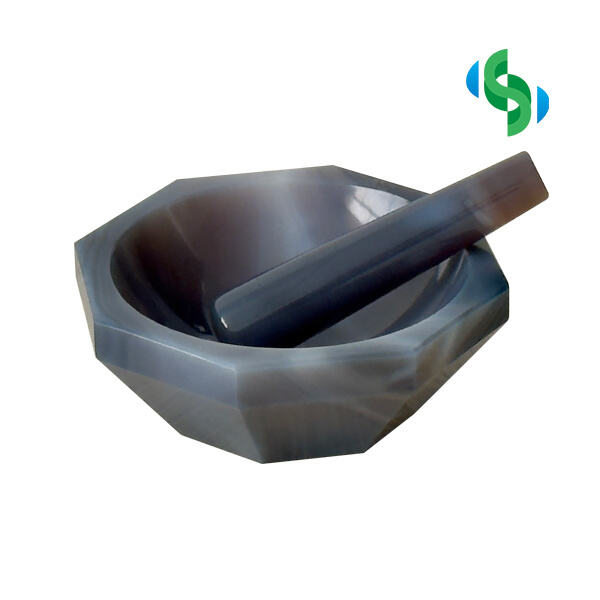In this world of chemical research, a laboratory mortar is one that always helps in grinding and mixing all types of chemicals. It is an indispensable mechanical equipment for crushing and mixing various chemical compounds. Used to grind solids into fine compounds or particles, laboratory mortars are made of highly tough materials such as glass, porcelain and agate which can withstand the harsh treatments against chemicals and solvents in experiments.
Next, we explore the 10 best laboratory grinders to idealize powerful grinding and mixing, also the Nanjing Chishun's product such as laboratory glove box. We also discuss how to choose the best laboratory mortar for your requirements, the benefits of using a lab mortar in chemical research and development (R&D), as well as good hygiene advice when cleaning or maintaining these tools and an overview on available types.
Researchers should be judged by the nature of their experiment and chemicals in choosing a laboratory mortar. For example, if one uses corrosive chemicals then a glass or porcelain mortar would be more ideal to use rather than an agate. Agate mortars have higher durability in the work process and are applied to more abrasive materials, but not all analyses.
Additionally, the mortar size and shape are also important, identical to vibration mill developed by Nanjing Chishun.

Chemical studies - Using a laboratory mortar. This feature allows researchers to efficiently mill and blend few grams of the materials especially useful in a case where expensive or scarce elements are involved, along with Nanjing Chishun's product laboratory muffle furnace. In addition, in the laboratory mortars uniform powders that can be accurately analyzed for composition are produced.

In addition to this, such instruments are also easy for use and you can clean them easily thereby ensuring that the experiment which will be tried next is not spoiled due to any contaminants, identical to high temperature laboratory furnace produced by Nanjing Chishun. Suitable for Powder Grinding and Liquid Mixing A laboratory mortar can be used to process solids or liquids, it is the most basic instrument in chemical research work.

There are several important features of a laboratory mortar that play an essential role in the best performance and longevity, just like the Nanjing Chishun's product called atmosphere box furnace. To clean a mortar, rinse all the bits and wash with soap and water. After that, it is rinsed with distilled water and allowed to drain. When more rigorous cleaning of, for instance types and chemical residues is necessary, soaking the mortar in a recommended cleaner may be needed.
we are specialized in providing you with machines for the Laboratory mortar. Each member of all of us works diligently and is accountable for the ongoing perform they do. We wish which our commitment and knowledge will allow you to create best work.
Our company is really a Laboratory mortar in manufacturing a position to combine research manufacturing, sales, and service. As one of the important Hi-tech Enterprises of Country Torch Plan, CHISHUN possessed the very best technical personnel hold many patents. along with working together with local professors from NJU, NUST and HHU.
Our items are Laboratory mortarwith a whole good deal of, is efficient, and quiet. They've been ideal to gather particulate examples four samples per experiment) at research institutes for medical research as well as corporate labs.
Our items are used Laboratory mortarin geology and mining and metallurgy. Electronics Ceramics, building materials, plus ceramics. Chemical industry plus light industry. Medicine, cosmetology. Protection for this environment.